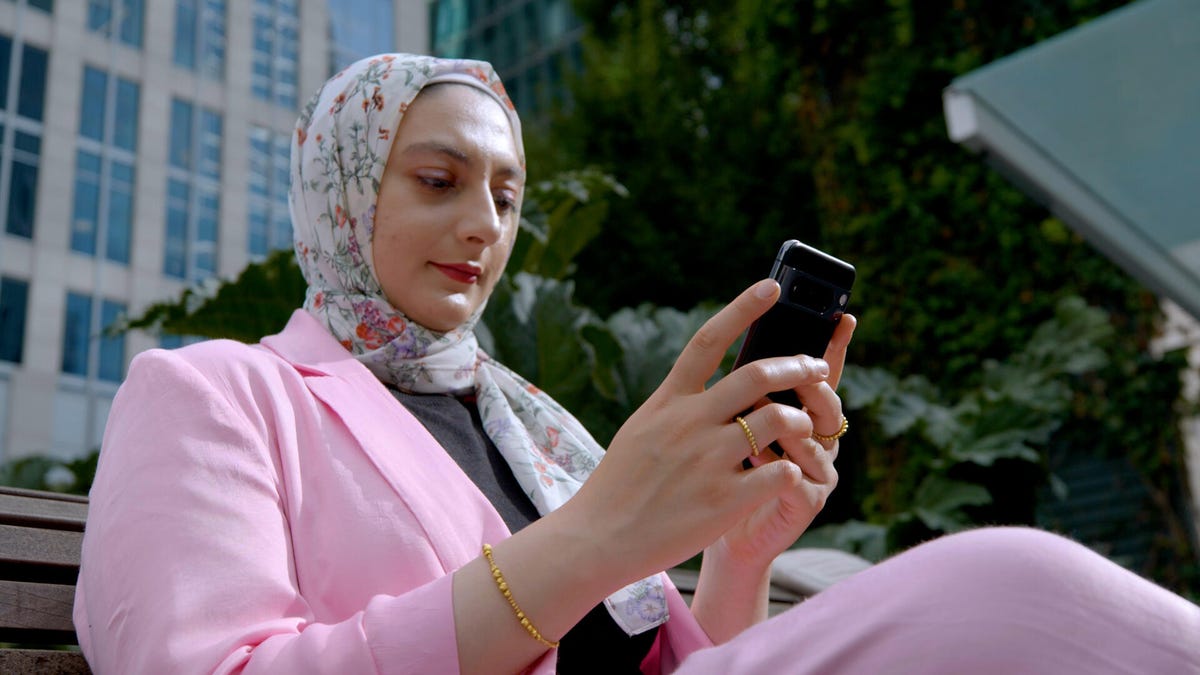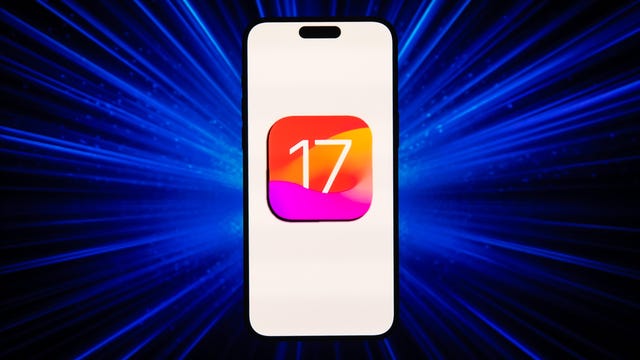Lately, I’ve developed a habit I’m not proud of. Whenever I feel overwhelmed or anxious, my immediate instinct is to reach for my phone, open up TikTok and find solace in mindless videos offering comic relief or a temporary escape from reality. I suspect this impulse to flee to my device is a common one.
It’s enjoyable in the moment, as I’m scrolling through videos that keenly tap into my interest areas. But once it’s time to put down my phone, reality sets in. The weight of the time I’ve wasted, along with the problem that still stands poised before me, waiting to be tackled, overshadows any temporary high.
See also: Excessive Screen Time Costs Billions, Report Says. Here’s What It Costs Your Health
As our lives have shifted increasingly online, it’s no secret that our dependence on smartphones has also escalated. But this can lead to unhealthy behaviors, like endlessly scrolling through social media or remaining glued to our tiny screens for hours on end. Around 57% of Americans say they’re addicted to their phones, according to a 2023 survey by Reviews.org. Additionally, Americans spend an average of 4 hours and 25 minutes on their mobile devices each day – an increase of 30% over 2022, the study found.
That sense of reliance can create a harmful, somewhat paradoxical relationship with our devices. A Pew Research survey from March found that 72% of US teens say they feel “peaceful” when they don’t have their smartphone, while 44% say it makes them anxious. These feelings aren’t limited to teenagers; as a 30-year-old who finds herself reaching for her phone far too often, and feeling a mixture of relief and unease when I’m without it, I wholeheartedly relate.
“Phones have become like a security blanket,” says psychologist Carder Stout. If someone who’s more introverted walks into a restaurant and is waiting for a friend, for instance, they might feel anxious or uncomfortable and instinctively reach for their phone.
“All of a sudden, when they start scrolling, they feel safe,” Stout adds. “They feel this sense that they’re connected to something, whether it’s texting another friend or looking at social media.”
Incessant scrolling can also be a procrastination tool. You might immerse yourself in social media to avoid a task or for a temporary reprieve from whatever’s on your mind.
“It’s just so easy to turn on your phone and look at something else to distract yourself,” says clinical psychologist Paul Losoff. “Over time, your brain starts to recognize that this feels good…That’s where some may argue that it’s the same thing as an addictive process where your brain just craves more and more of it.”
Each notification or social media “like” can offer a hit of dopamine, a neurotransmitter that gives feelings of pleasure. Ginger Pennington, an associate professor of psychology at Northwestern University, compares the experience of scrolling through social media to “retail therapy.”
“We just want some kind of emotional fix to feel good,” she notes. “And if making a little purchase makes us feel good, or getting a little sound bite off TikTok or a little funny video will make us feel good – it’s just seeking that mental, psychological, emotional reward.”
It doesn’t help that apps are “designed to tap into our addictive tendencies,” as Joseph Trunzo, psychology professor at Bryant University, puts it. Along with dopamine hits from high-performing posts, platforms like TikTok and Instagram Reels use unpredictability to keep us scrolling. Not every video will make you laugh or resonate with you, so you might keep scrolling until you find one that does. Constantly thinking that next gem is just within reach makes it harder to put down your phone, Pennington says. And once you come across that great video, there’s more of an incentive to keep scrolling to find the next one.
“There are so many ways these platforms are being engineered to play on our psychology,” says Juliana Schroeder, an associate professor at the University of California, Berkeley, “and keep our eyeballs on the screen.”
The effects of endless scrolling
Being glued to your phone can not only impact memory (remember when you could memorize a phone number?) and focus, but it can also take a toll on real-life relationships. If everyone has their phones out while at dinner, for example, that can diminish the quality of time spent together.
“Humans aren’t well set up to multitask in that way,” Schroeder says. “It takes away the focus from offline interactions.”
There’s an understandably heightened focus on screen time’s impact on younger, more vulnerable minds that are still developing. Instagram caused outrage among child advocates when it shared plans in 2021 to launch a platform for kids under 13 – an effort that the company ultimately put on hold. And its parent company Meta (then Facebook) came under fire after its own researchers found Instagram is “harmful for a sizable percentage” of young users, particularly teenage girls.
Competitor TikTok has also faced its fair share of criticism for surfacing harmful content. And while the app’s “For You” feed does an excellent job of pinpointing users’ interests, I can confirm it also does a great job of ensnaring you for hours on end. Its streamlined interface is designed to keep you scrolling.
Android and iOS have screen time tools to help you mitigate time spent on your favorite apps. Social media companies have also introduced safety and mental health measures to curb criticism, like hiding likes on Instagram or limiting teens’ screen time on TikTok by default. A TikTok spokesperson noted the company uses a combination of technologies and moderation teams to pinpoint and remove content that violates its community guidelines, and has well-being tools like a screen time dashboard that summarizes how long someone’s spent on the app. But some say it’s not enough.
“They can tell us all day long that they’re not doing anything nefarious, or they’re trying to minimize harm to kids,” says Losoff. “And while they may believe that, and while they may be taking steps, they’re still trying to get kids’ eyeballs on the screen for longer.”
These concerns about the effects of modern-day technology aren’t novel; they’ve existed since the advent of radio and television. But our collective obsession with our phones and social media differs in a key way: “We’re not with our TV set all day long,” Pennington notes. Social media companies have also found ways to serve us personalized content in ways traditional media never could, using algorithms and by tracking our behavior, like whether we click on an ad or how long we watch a video.
“Before, a phone was just a phone, and now it’s a mini computer that’s more easy to use and accessible than any real computer,” says Sheehan Fisher, associate professor of psychiatry and behavioral sciences at Northwestern University. “It’s almost something that’s learning you better than you know yourself.”
How to break your endless scrolling habit
So what can you do if, like me, you want to spend less time on your phone? Here’s what experts suggest.
Don’t use your phone as your alarm. Get a physical alarm clock, so that your phone isn’t the last thing you see before you go to sleep and the first thing you check when you wake up. I can confirm it’s a slippery slope; once I set or turn off my phone alarm, it’s easy to check TikTok or Instagram, and I ultimately end up spending more time staring at a screen than I anticipated.
If you want to take things a step further, you can even leave your phone in a separate room, as CNET mobile reporter David Lumb did to improve his sleep. Doing so could eliminate the temptation to check it as you drift off. And when you wake up in the morning, you won’t be able to reach over and start your day by scrolling through TikTok videos (guilty!).
You can also set designated days to be fully unplugged, like Sundays, suggests Losoff. Put your phone away and have a screen time detox.
If that sounds too challenging, you can do what my colleague Jessica Fierro suggests and utilize Focus modes on your iPhone or Android phone. You can create custom settings to silence or allow certain notifications during designated times. For example, you can set a focus mode for work and select which people and apps to receive notifications from. That way, I can get calls and texts from my mom, but block pings from Instagram or TikTok that could distract me.
You can also go into your phone’s settings and turn on grayscale mode to make looking at typically colorful posts less appealing. However, Schroeder notes those features “don’t seem to work that well, because they’re so annoying that people don’t stick with them.”
And while I’m still on this journey of limiting screen time, I’ve found it helps to delete apps I don’t want to use as much, like X (formerly Twitter), and to remove others from my home screen to tap into the “out of sight, out of mind” approach. That extends to work-related apps like Slack, so I have less reason to check my phone or be lured by yet another notification badge on my home screen. In fact, Stout recommends only working from a computer when you’re at home, to create separation between your professional and personal life and make it easier to focus on quality time with loved ones. In other words, don’t multitask by sending emails from your phone while having a conversation with your kids or eating dinner.
“Your work time is your work time, and your social time or your time with family then becomes something else,” Stout says. “But you’re not doing them simultaneously.”
I’ve also been making an effort to bring a book or Kindle with me wherever I go, so if I’m waiting at a restaurant or on the train, I can focus on something that can’t get notifications to read instead of mindlessly scrolling.
Stout says it comes down to setting realistic goals so you don’t feel unmotivated or despondent if you can’t give up scrolling cold turkey. If you spend two hours on social media, cut it down to one hour. After some time, you might find that you can cut that down to half an hour.
“You want to set achievable goals for yourself, and ones that work for you,” he says. “Ones that ultimately are going to make you feel good and give you self esteem, which is, ‘You know what, I set that goal and I achieved it, and I feel really good about myself.’”



